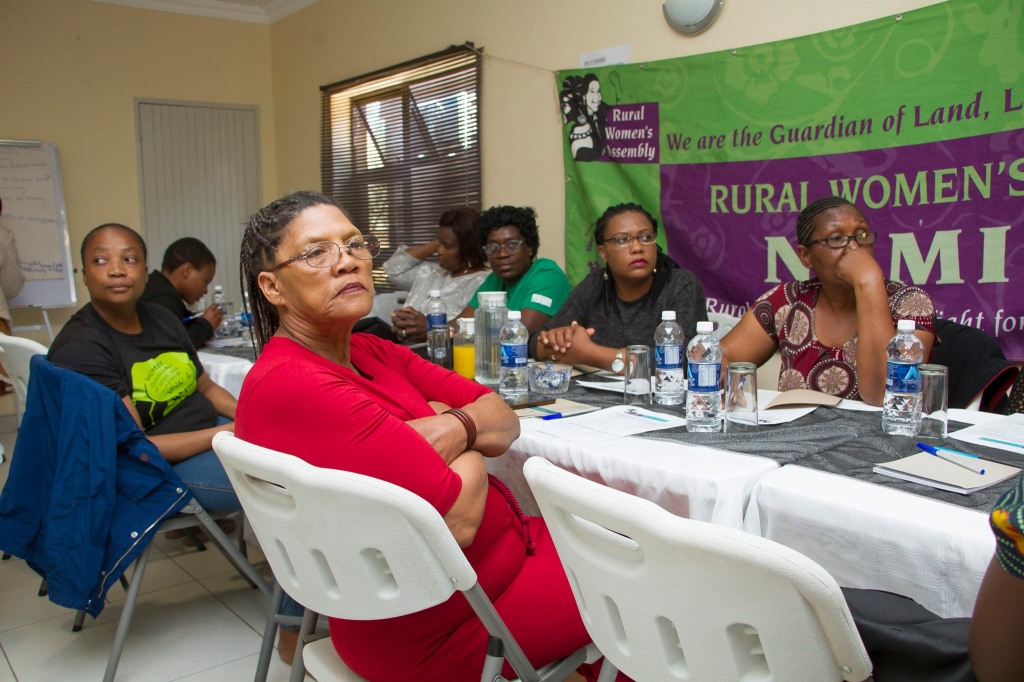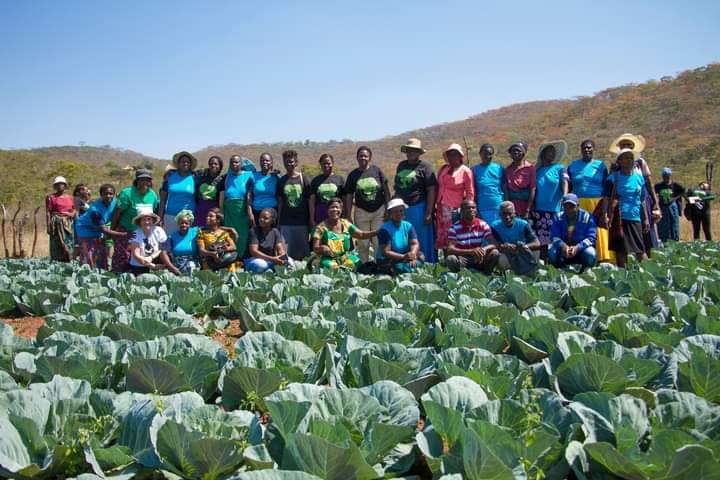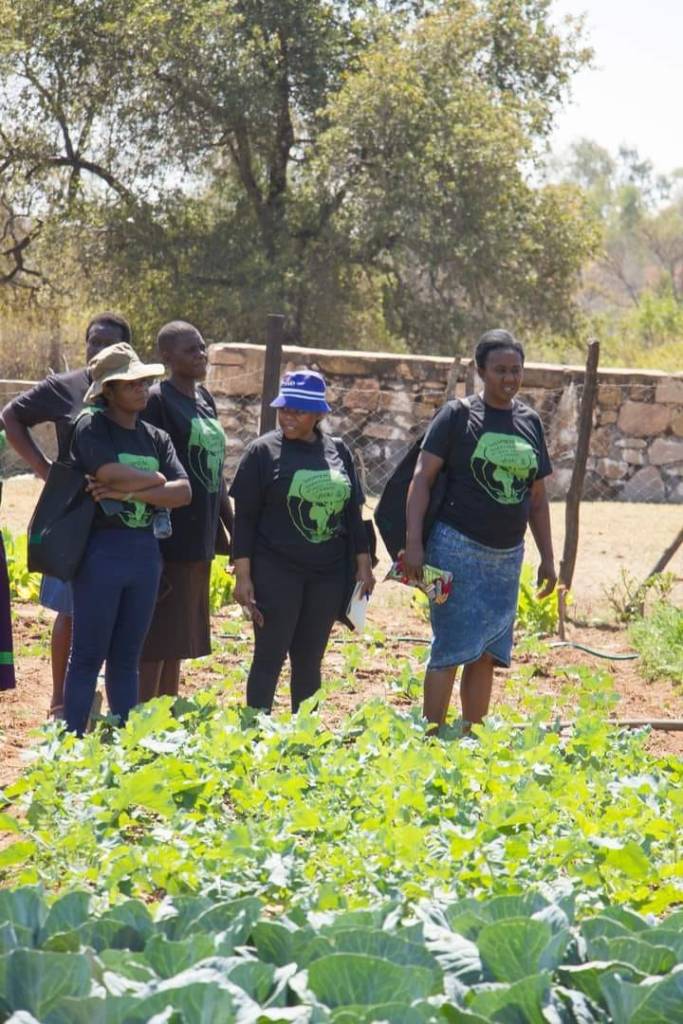This year, the Rural Women’s Assembly (RWA) hosted its first Feminist Agroecology School from 26 August to 1 September 2022 in Kwekwe, Zimbabwe. About 100 rural women farmers from the Southern African region attended the school. To read the 2022 Feminist Agroecology School report, please click here.

As rural women farmers, we realise that feminist agroecology is integral to our struggle for food and seed sovereignty. Rural women farmers are the custodians of indigenous knowledge and practices and it is common knowledge that rural women have already been practising agroecology, without necessarily naming it as such. A lot of the innovations done by women in agroecology are not recognised. Despite this, through learning and exchanging knowledge, rural women continue the task of transferring their knowledge about agroecology to future generations.
An important aspect of the School’s focus was to raise awareness and build consciousness about feminist agroecology amongst RWA members. The School also focused on deepening the women’s capacity as food producers in the face of climate change. Africa continues to experience climate disasters and the challenges are mounting – there is a loss of biodiversity, water and soil degradation.
The RWA joins global radical farmers who participate in the Agroecology Movement. RWA acknowledges that agroecology is fast gaining momentum as a sustainable farming approach and is a set of practices designed to transform and advance food systems that subvert the patterns of farmer exploitation currently entrenched in dominant agricultural models.

Women farmers and producers contribute significantly to global and local food systems. Women are the custodians of agricultural biodiversity, traditional knowledge, seed saving and owners of community seed. Yet, even in the agroecology movement control over land and markets remains largely in the hands of their male counterparts. This is why the School sees it as important that women focus on feminist agroecology since women constitute most rural farmers.
The RWA members also support and promote agroecology because it is affordable, cost effective, produces healthy food and preserves the soil and the environment. Agroecology is centred on promoting farmer saved seeds, cherishing indigenous knowledge systems, indigenous plant varieties as well as vegetables such as amaranths, kale, cowpeas, bitter melons and pumpkins, to name a few.
It is women who are the custodians and the guardians of seeds, especially traditional varieties that are known to be stable and uniform, which boosts household food security even during drought periods. As rural women continue to conserve, save, store and share traditional seeds and use traditional varieties, the Food Sovereignty agenda can be advanced. Moreover, it is rural women’s role in seed saving that guards against seed extinction.
Given women’s role in agroecology, it is imperative that women are mobilised and sensitised to challenge unequal land ownership patterns. Furthermore, women must also challenge the manner in which industrial agriculture continues to create and exacerbate social inequalities that impacts negatively on the most vulnerable. Women, especially poor rural women, continue to be excluded from decision making in food systems at local levels as well as in their households.



For the RWA, feminist agroecology intends to address unequal power relations between men and women in the food systems as well as affirming women’s historical contribution to seed and food sovereignty. It can also directly challenge women’s disempowerment. It is about women’s self-determination and reclaiming control of one’s own food, land, and body — rights which have been stripped from the majority of producers by a productivist and profit-driven industrial agricultural paradigm. Feminist agroecology is about having access not only to sufficient food, but to food which is culturally appropriate and produced in an ecologically sustainable manner. In this way, feminist agroecology challenges the power of the dominant model of industrial agriculture and profit-driven food system and consequently the patriarchal system sustaining capitalist relations of production. At the same time, it restores women’s relationship with key bio-systems creating a nurturing harmony with the land, soil, water and the minerals upon which all species depend.



The RWA promotes feminist agroecology so as to strengthen the coherence between caring for nature, seeds, trees or medicinal herbs and achieving good food production. For us, feminist agroecology allows women to reinforce, recover, improve and finally guarantee vigorous and sustainable productive processes and further nurture their relationship to nature and mother earth.
The women appreciated the opportunity to be part of the School and can’t wait to share their experience, knowledge and skills with other women in their respective countries. But there is still a long way to go and more must be done to advance Feminist Agroecology in Southern Africa.



During the Feminist Agroecology School, the women collectively brought forward the following demands:

1. There is a need to affirm and advance the rights of nature.
2. In the RWA, there is need to improve on the documentation and preservations of indigenous knowledge and seeds.
3. There is need to put in place agroecology policies which safeguard the rights of women to agroecology.
4. Strengthen women’s access and control over land and the commons.
5. There is need for legislative frameworks that promote local seed sharing and selling of farmer saved seeds and not criminalise practices that peasants have practiced for generations so as to promote corporatized seed systems.
6. We have to further promote and scale up agroecology.
7. Governments support further adoption and implementation of public policies promoting production and consumption of agroecological food.
8. The urgent need for public policies, resources for agroecological production as a tool/strategy for climate mitigation.



